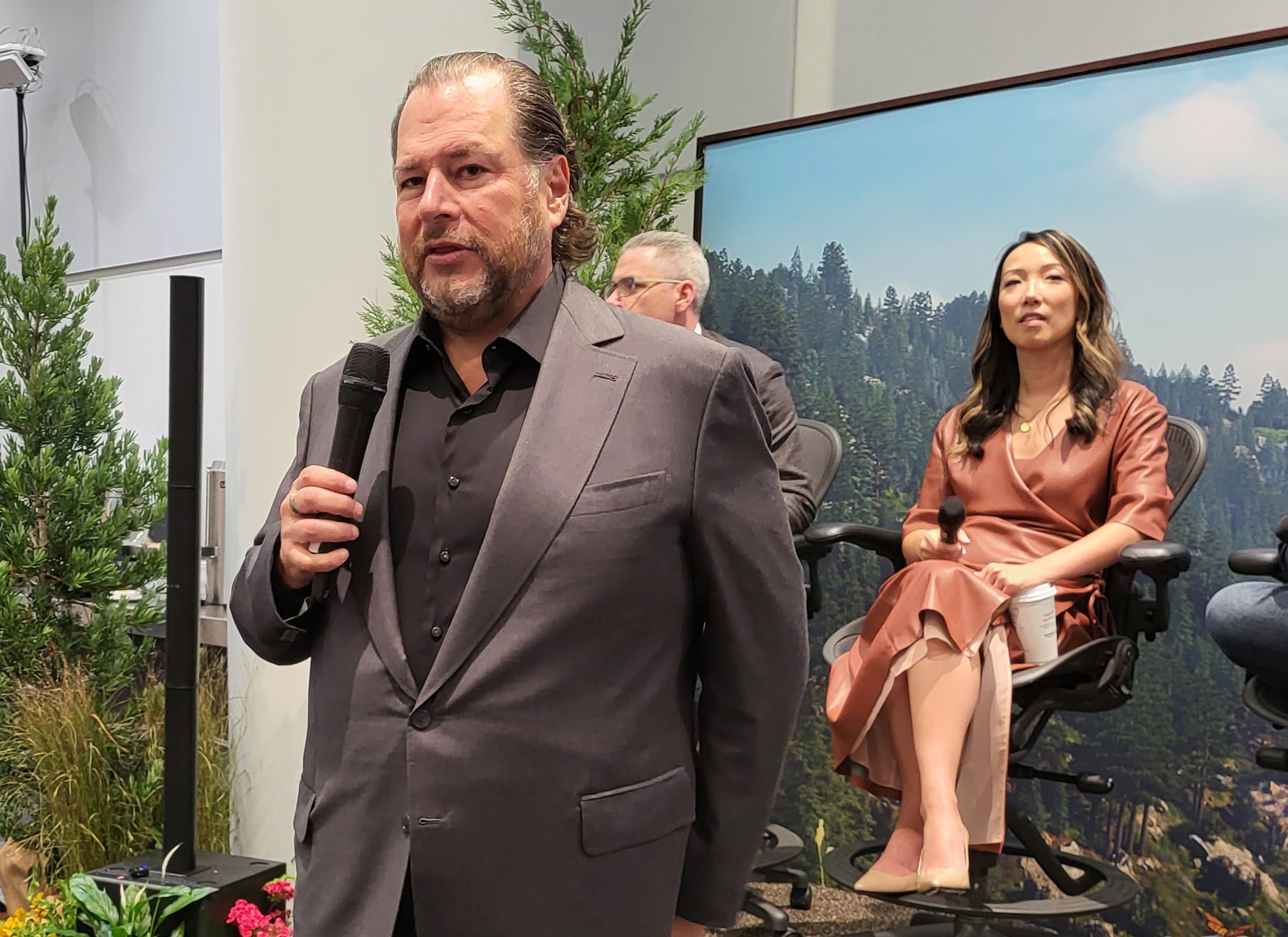Artificial Intelligence
Einstein Copilot makes
massive AI leap
At the Dreamforce conference in San Francisco last week, Salesforce lifted the lid on the next generation of AI tools for business, writes ARTHUR GOLDSTUCK.
The artificial intelligence (AI) revolution that has swept the public over the past nine months reached deep into the business world this week, promising a revolution in sales and customer relations management (CRM).
The world’s biggest annual software conference, Dreamforce in San Francisco, hosted by global CRM leader Salesforce, saw the launch of a “conversational AI assistant” called Einstein Copilot. In effect it is the sales and CRM equivalent of ChatGPT, the “generative AI” chatbot that was launched by OpenAI at the end of November last year.
“There is no question that this AI opportunity is going to change everything and probably anything, and for all of us,” said Salesforce co-founder and CEO Marc Benioff in his Dreamforce keynote address on Tuesday. “We can see we can have higher levels of customer success and productivity and growth and transformation and strategy with this new technology. It is going to radically change our landscape. Everything is going to shift at the same time.”
Sam Altman, CEO of OpenAI, joined Benioff in conversation on stage the following day, and reiterated this view.
“In the same way that the Internet and then mobile seeped in everywhere, that’s going to happen with intelligence,” said Altman. “Right now, people talk about being an AI company. There was a time after the iPhone App Store launched when people talked about being a mobile company. But no software company says they’re a mobile company now because it’d be unthinkable to not have a mobile app. And it’ll be unthinkable not to have intelligence integrated into every product and service.”
The Einstein AI platform has been under development at Salesforce for a decade now, and in recent years has been used as a predictive tool based on data analytics. Earlier this year, Salesforce launched Einstein GPT, leveraging the ChatGPT generative AI model. Copilot is a significant evolution of this approach, and is expected to boost productivity by assisting users within their flow of work, enabling them to ask questions in natural language, and receive relevant and trusted answers that are grounded in a company’s own data. This, in turn, is expected to help companies improve productivity, drive revenue and create personalised experiences for customers on a mass basis.
Rahul Auradkar, Salesforce executive vice president and general manager for Einstein, said in an interview that there were Copilot variations for every business function: “Think of Copilot as anything that is an adjunct to a human, in that it’s helping humans do better tasks. Across the board, Copilots are giving significant value to our customers, whether it is in sales, service, commerce, marketing, or insights.”
Case studies presented during Dreamforce ranged from the American Automobile Association to Heathrow Airport, which says it uses digital technologies to create personalised experiences that increase customer engagement and revenue.
“We use Einstein – grounded on the unified, real-time data of 25-million passenger records – to personalise interactions with our customers,” said Peter Burns, Heathrow director of marketing and digital. “This use of AI allows us to provide the right services to the right passengers at the right times, while also anticipating passenger needs before their next airport visit.”
South Africa’s Standard Bank participated in a session on “building an agile, secure company”, while US-based Esquire Bank said it transformed its marketing organisation into a high-performing content marketing team by leveraging AI and personalisation for hyper-targeted marketing. PepsiCo said it was using it to build better account plans, increase forecast accuracy, and develop more strategic in-store activations.
One of the first companies using Einstein Copilot, the Israeli- based global investment platform eToro, with 32-million users in 100 countries, uses chatbots and AI procedures to serve customers across digital channels as well as in contact centres. After Einstein GPT was launched, it met with Salesforce management to understand its roadmap.
Miri Avihoo, eToro’s business process manager, told us in an interview: “We decided we will combine our visions of how we treat AI opportunities, and today we have a big Copilot environment that was developed by our team. We are an extremely regulated company and any answer that we give our customer should be reviewed. The AI assists us with getting the right information that the agent then double-checks.
“This is a time saver and a money saver because accuracy is going up and the amount of time they need to spend on fetching and reading the information is going down. So your efficiency is going higher and higher and the time and cost is getting lower.
“It’s the beginning of a revolution but the journey is long.”
During a press briefing, I asked Benioff for his response to a common view that emerging markets are not ready for AI due to limitations of infrastructure, skills and education.
“Well, I think no one is ready for AI,” he said. “You’re not alone. Every economy is really just wrestling.
“But then you realise that when we talk about education, the opportunity to provide highly customised, highly personalised, great education for every student, this is like a great threshold moment in the world of education. That’s a great opportunity for Africa. But that’s a great opportunity in San Francisco too.
“A year ago… this is not where any of us were. The whole world has changed. It’s been amazing. It very much reflects the times and reflects the opportunity, not just for your country, but for every country.”
















